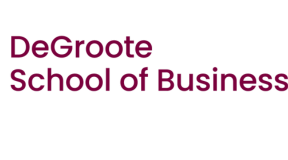
Enhancing Financial, Physical, and Digital Mobility

About
Enhancing Financial, Physical, and Digital Mobility: Designing User-Centered Gig Work Solutions for Older Newcomers
Platform-mediated gig work is defined as digitalized independent work that provides casual income opportunities. Workers are often hired as independent contractors on short-term contracts to complete specific gigs, such as ridesharing and food delivery services.
In 2023, newcomers made up nearly 60% of the platform-mediated gig workforce according to Statistics Canada, and the proportion of immigrant gig workers is rising. It is estimated that 28% of gig workers are over 55 years old. For older newcomers who arrived in Canada through family reunification programs, this type of work can provide them with financial independence from their adult children and the flexibility to care for grandchildren while engaging in occasional work.
Despite their active presence in the workforce, our knowledge about the experiences of older immigrants in gig work is limited.
The Research
Purpose
This study will investigate how older immigrants perceive and interact with platform-mediated gig work as they navigate evolving physical, mental, and technological mobility demands. The goal of this study is to better understand the mobility experiences and aspirations of older immigrants in platform-based gig work.
Methods
Through interviews with older immigrants and relevant stakeholders, as well as surveys and co-design workshops with older immigrants working on gig-work platforms, the study will provide a comprehensive understanding of how older immigrants interact with and are impacted by various challenges and opportunities while participating in gig-work. The end-users are older immigrants in the platform-mediated gig workforce. The stakeholders include older immigrants, digital gig work platforms, policy-makers, labour organizations, and newcomer settlement organizations.
Findings
The findings will improve the efficacy and usability of digital gig-work platforms by enhancing ease of understanding, navigation, and user-friendliness, which will benefit both end users and other stakeholders. This project will improve older newcomers’ access to resources and opportunities for well-being and prosperity by enhancing their financial and physical mobility.
Research Team
Dr. Cansu Ekmekcioglu is the Principal Investigator and is an Assistant Professor of Information Systems at the DeGroote School of Business. Her work draws on human-computer interaction, social science, and co-design methodologies to evaluate and improve the information systems with marginalized communities. She will bring her expertise on how newcomer communities (e.g., immigrants, refugees) and marginalized workers interact with digital technologies and how this can inform more sustainable and inclusive technology design.
Dr. Brian Detlor is Professor of Information Systems at the DeGroote School of Business, as well as Vice-Chair of the McMaster Research Ethics Board. His current research interests focus on the digital literacy training needs of marginalized older adults.
Dr. Catherine E. Connelly is a Professor of Human Resources and Management at the DeGroote School of Business. She is the acting director of the McMaster Centre for Research on Employment and Work (MCREW) and the director of the McMaster Organizational Behaviour Laboratory (MOBL). Her research focuses on the experiences of newcomers to Canada (e.g., temporary foreign workers, immigrants, permanent residents) as well as gig workers (e.g., Uber drivers) and workers with disabilities (e.g., arthritis).
Dr. Nicole K. Dalmer is an Assistant Professor in Health, Aging, and Society with the McMaster University Faculty of Social Sciences. She provides expertise at the intersections of social and critical gerontology and socio-gerontechnology. She also examines ageism in the workplace and intersections of ageism and technology.
Dr. Irene Ye Yuan is an Assistant Professor in the Department of Computing and Software. She provides expertise in human-computer interaction and social computing, with a focus on designing and building technology to support older adults’ activities. Her current research investigates novel system design to support older adults’ social activities and connection needs.
Ayza Vardar joins our team as collaborator and community consultant. She is currently the Director of Turkish Community Heritage Center of Canada (TCHCC), and she has extensive experience in providing settlement support for immigrants from the Middle East and North Africa.
Aniqa Mazumder is a Research Assistant and a graduate of the Master of Science in Global Health program from the Mary Heersink School of Global Health and Social Medicine. She completed her master’s research on the health impacts of precarious labour in the gig economy for immigrant workers, and is interested in investigating ways to improve health equity social mobility for marginalized gig workers.
Get in touch

